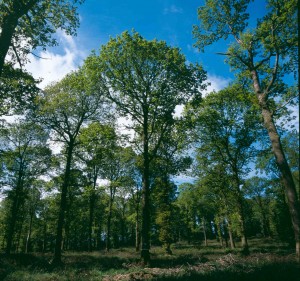
A coalition of environmental groups has called upon the Government to halt the planned sale of public forest assets, currently managed by Coillte company.
The coalition, named The Environmental Pillar, issued a press release in anticipation of International Day of Forests on the 21st of March this year condemning the proposed sale of publicly-owned forests and the likelihood of the use of funds from the sale to pay toward the debts incurred by the on-going financial crisis.
Newsfour spoke with Andrew St. Ledger, spokesperson for the Environmental Pillar.
“A similar notion was proposed by the government in the UK last year, and it was opposed in the same fashion as we are now,” he says. “The sales were suspended and an independent review was commissioned on the use of forest resources throughout the UK. The review board’s findings led to a change in national forestry policy.”
The British Government intended to sell packages of forest land on 150-year leases, with the intent to raise £250 million. Here, the leases would be 90 years in duration. Mr St. Ledger pointed out that “practically speaking, a 80-year lease is as good as ownership.”
“It’s important that people from urban environments are alerted to these concerns. Public Forests are our children’s and grandchildren’s inheritance. The current administration sees the status of Forests as an aspect of agriculture. It’s short-term economic thinking. They’re not considering the matter of mineral rights they might be giving away with the sale, they’re not thinking about remedying the lack of native Irish species in our forests. Our first policy objective is to halt the sale of the Collite land and our second will be the establishment of an independent review of national policy on forest land, as we saw last July year in the UK.”
“What’s needed is a change in national policy” asserted Mr St. Ledger. “In 1906, Ireland established a Forestry Policy modelled after the equivalent in the UK. That’s no longer appropriate.”
The scheme has been argued by the Troika as intended to be like the successful privatisation of forestland in New Zealand which has a population comparable to Ireland. However, Ireland has the second lowest tree coverage of in Europe – only 11% compared to an average of 30%.
By Ruairi Conneely

